Good news for coffee lovers! China and El Salvador establish diplomatic relations! Learn about Salvadoran coffee.
Professional coffee knowledge exchange more coffee bean information please follow the coffee workshop (Wechat official account cafe_style)
State Councilor and Foreign Minister Wang Yi held talks with Salvadoran Foreign Minister Castaneda in Beijing on August 21, Reuters reported Monday. After the talks, the foreign ministers of the two countries signed the Joint Communique on the Establishment of diplomatic Relations between the people's Republic of China and the Republic of El Salvador. Salvadoran President Salvador Sanchez Salem said in a nationally televised address that his government had broken off diplomatic relations with Taiwan and established diplomatic relations with China.
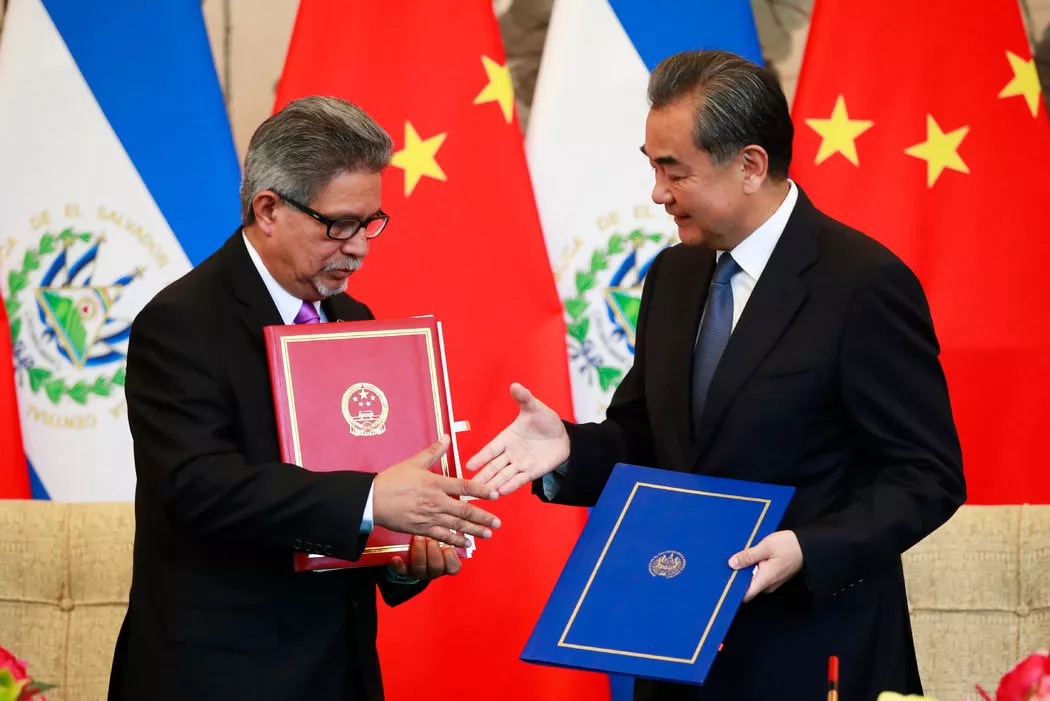
The main contents of the communique are as follows:
The people's Republic of China and the Republic of El Salvador, in accordance with the interests and aspirations of the two peoples, hereby decide to recognize each other and establish diplomatic relations at the ambassadorial level from the date of signing of the communique.
The two governments agreed to develop friendly relations between the two countries on the basis of mutual respect for sovereignty and territorial integrity, mutual non-aggression, non-interference in each other's internal affairs, equality and mutual benefit, and peaceful coexistence.
The Government of the Republic of El Salvador recognizes that there is only one China in the world, that the Government of the people's Republic of China is the sole legitimate government representing the whole of China, and that Taiwan is an inalienable part of Chinese territory. The government of the Republic of El Salvador today severed its "diplomatic relations" with Taiwan and promised not to have any official relations or official exchanges with Taiwan. The Government of the people's Republic of China appreciates the above-mentioned position of the Government of the Republic of El Salvador.
This big news is definitely good news for you who love coffee!
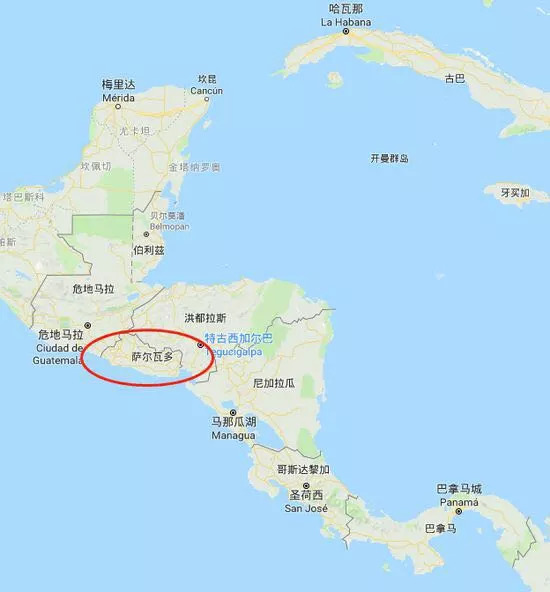
El Salvador is the smallest country in Central America.
The development of the country is mainly agriculture, the industrial foundation is weak, and the economic growth is slow in recent years. Foreign trade accounts for more than half of GDP. It mainly exports coffee, cotton, sugar, shrimp and textiles, and the main export countries are the United States, Guatemala, Honduras and Costa Rica. According to the website of the Chinese Ministry of Foreign Affairs, the trade volume between China and Saudi Arabia in 2017 was US $889 million, of which China exported US $773 million and imported US $116 million. China mainly exports textiles, footwear, vehicles, machinery and equipment, chemicals, etc., and imports electrical machinery and metal ore.
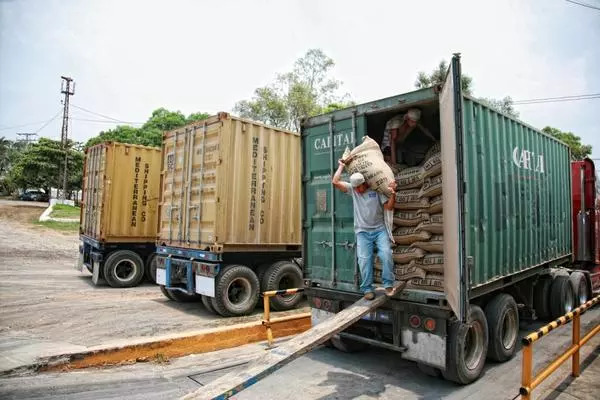
El Salvador is known as the "land of volcanoes"
El Salvador is located in the north of Central America. It is bordered by Honduras to the north, the Pacific Ocean to the south, Guatemala to the west and northwest, and the Gulf of Fonseca in the Pacific to the east. The smallest and most populous country in Central America. Topography to mountains, plateaus, multi-volcanic, Santa Ana active volcano 2385 meters above sea level, the highest peak in the country; the north for the Lompa River Valley; the south for the narrow coastal plain.
Salvadoran coffee refers to the coffee produced in the small South American country of El Salvador, where the coffee body is light, aromatic, pure, slightly sour, the flavor is extremely balanced, is a specialty of Central America. With sour, bitter, sweet and other taste characteristics, the best baking degree is moderate, deep.
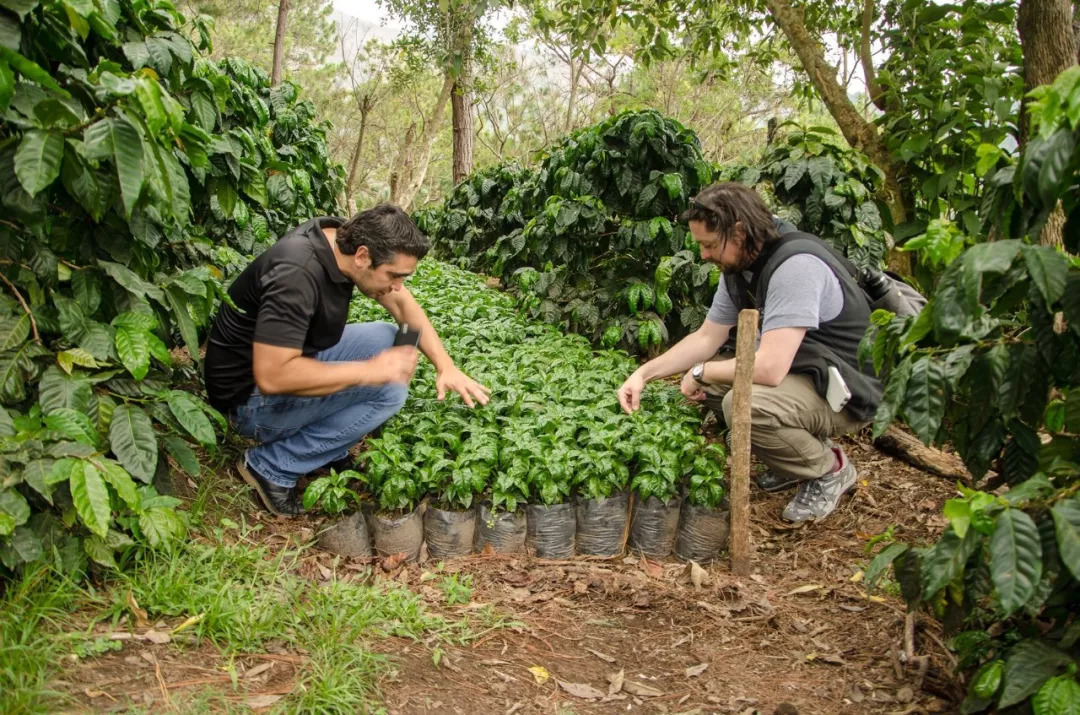
In the early 1990s, guerrilla warfare greatly damaged the country's national economy, reducing coffee production from 3.5 million bags in the early 1970s to 2.5 million bags in 1990-1991. The eastern part of the country was most affected by guerrilla warfare, and many farmers and workers were forced to leave the manor. The shortage of funds has led to a sharp drop in coffee production, from 1200 kg per hectare in the past to less than 900kg per hectare today.
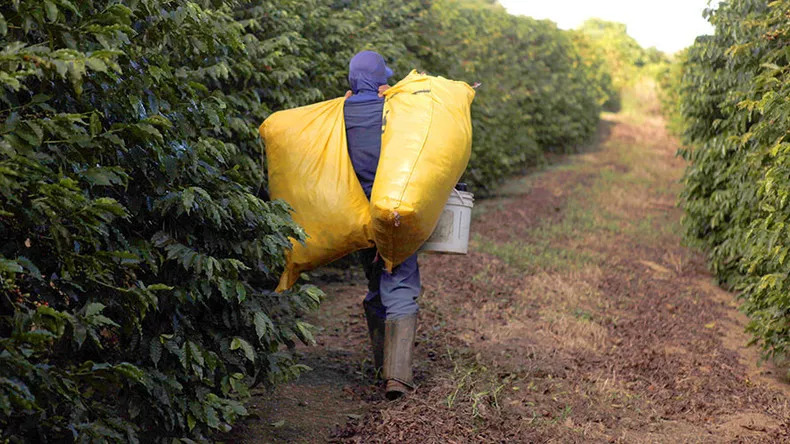
In addition, the government imposed an additional 15% tariff on exported coffee in 1986, that is, an additional 15% in addition to the existing 30% tax. Taxes, together with unfavorable exchange rates, have greatly reduced the export of coffee and the quality of coffee.
The government finally realized the great role of coffee in the national economy, such as solving employment, earning foreign exchange and developing agricultural production, so it privatized some coffee export industries in 1990, hoping to increase the income rate of coffee in the export market.
Today, this coffee accounts for 40% of the country's exports. The best quality coffee is exported from January to March, and 35% of the extra hard beans are exported to Germany.
The country is divided into 14 provinces, 7 of which produce coffee.
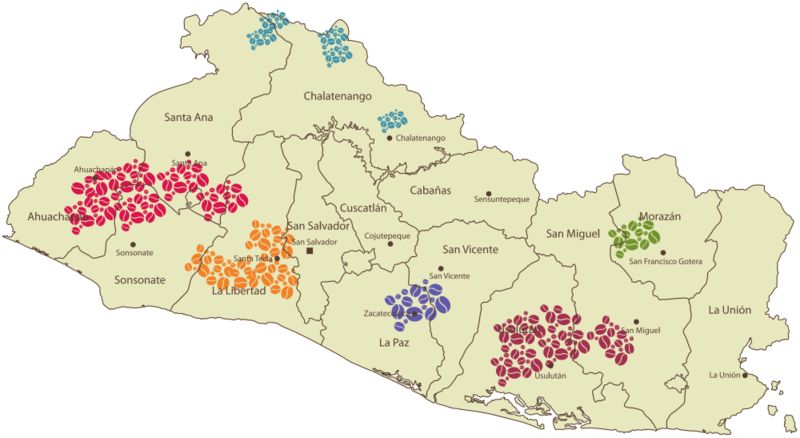
There are more than 20 volcanoes in the territory, known as "the country of volcanoes". The lowest elevation in the territory is 0 meters, and the highest is 2385 meters of Santa Ana active volcano.
It became a Spanish colony in 1524.
Independence from Spain in 1821.
In 1824, he joined the Union of Central America, including Guatemala, Honduras, Nicaragua, Costa Rica, and Mexico.
In 1841, he seceded from the Union, became independent, and established a republic.
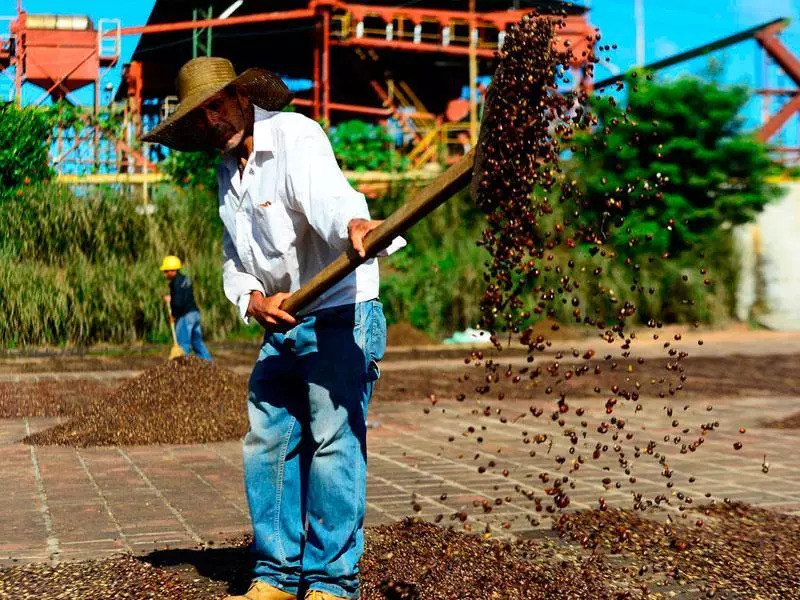
A brief History of Coffee production
In 1742, coffee was introduced into El Salvador from the Caribbean.
In the mid-19th century, El Salvador's original export pillar indigo (Indigo, a kind of dye) industry received a gradual decline in the development of synthetic dyes in Europe, and coffee gradually became the main export product under the leadership of the government.
In 1856, the first 693 bags of coffee beans were shipped to Europe. Europe was El Salvador's most important coffee customer until World War II, which was replaced by the United States after World War II.
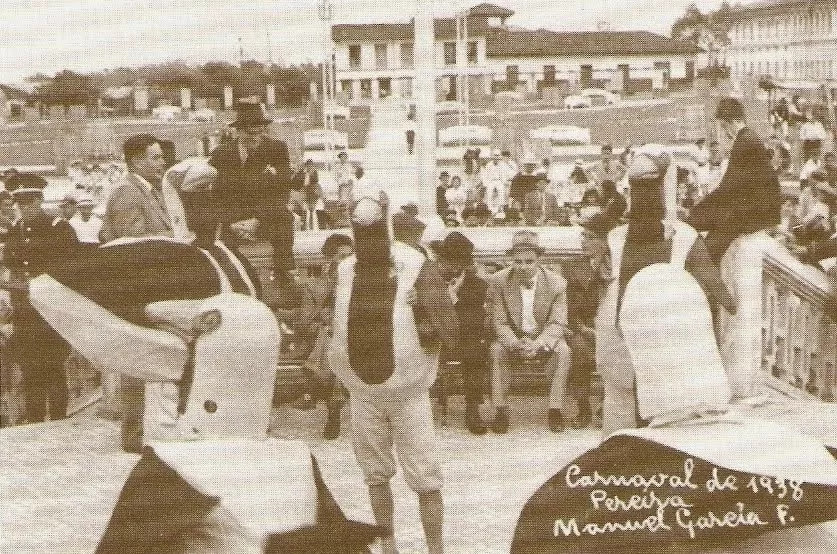
In the 1970s, El Salvador produced a record 350000 bags of coffee. As the civil war intensified, the coffee industry was in turmoil.
Coffee production in El Salvador was once influenced by the domestic political situation. In 1992, the parties signed a peace agreement and the civil war was suspended. The coffee industry began to recover.
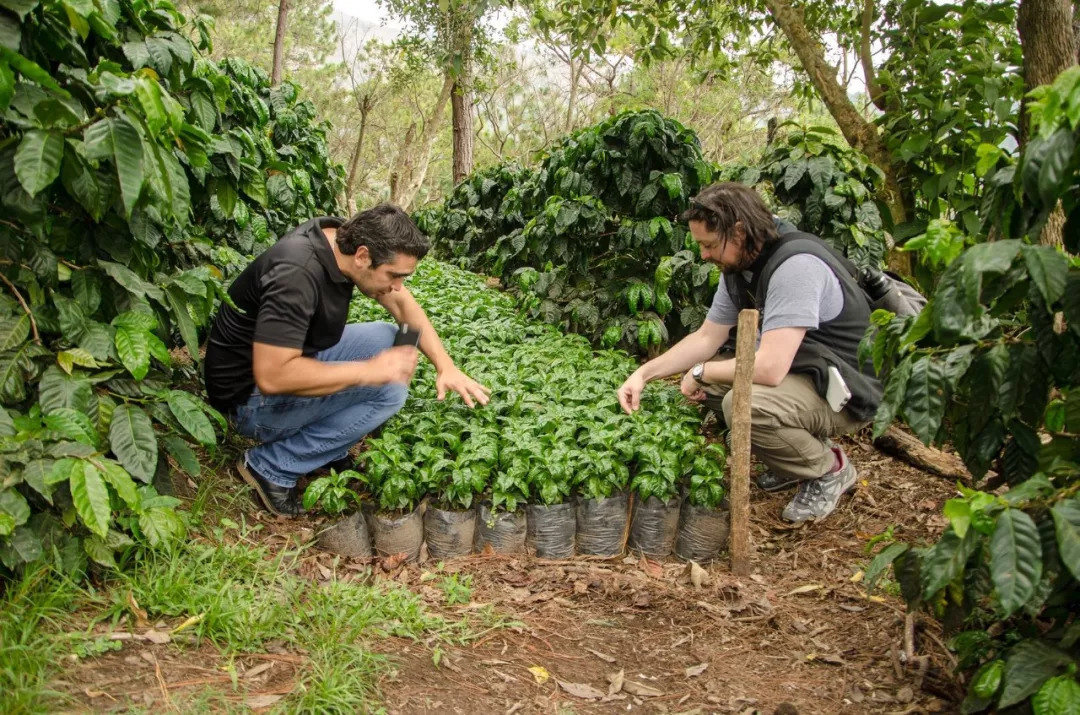
Coffee flavor
Coffee flavor is related to the microclimate of the producing area. On the whole, Salvadoran coffee inherits the mild quality of Central American coffee. It is soft, slightly sour, has beautiful sweetness and is suitable for blending.
Boutique Salvadoran coffee can also be impressive, including some pacamara varieties, active acidity, layered and deep taste, and a long finish. Many curry friends also like the beans from El Salvador, especially the Pacamara Pacamara we are familiar with. Pacamara is a rare excellent variety under artificial breeding, which is better than blue, and perfectly inherits the advantages of the mother plant. It not only has the excellent taste of pacas species, but also inherits the large size of malagogipe. The Pacamara species is thought to be the result of the pursuit of large Arabica species.
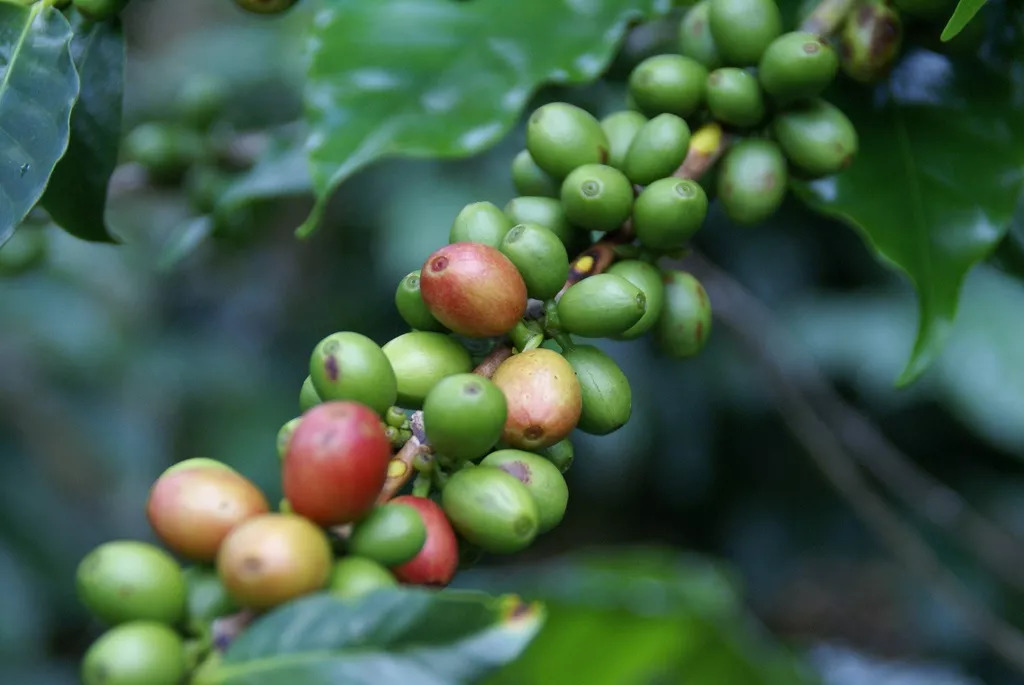
Don't underestimate El Salvador's coffee production. In its heyday, it was once the fourth largest coffee producer in the world, but decades of civil war almost dragged down the coffee industry. fortunately, the war has stopped in recent years, and the coffee industry has come back to life. The only benefit that the civil war brought to the Salvadoran country was that the farmers' fields were barren and failed to catch up with the most popular Katimo exposure train in the past two decades, thus preserving the ancient varieties of bourbon and Tibica, that is to say, El Salvador still uses the most traditional shade planting, which is of positive significance to the aroma of coffee.
In 2005, the Salvadoran mixed-race Pacamara boasted in coe, which confused many international cup testers and did not know how to grade it. It was never expected that this hybrid bean not only broke the mellow boundaries of coffee, but also expanded the visibility of Salvadoran coffee.
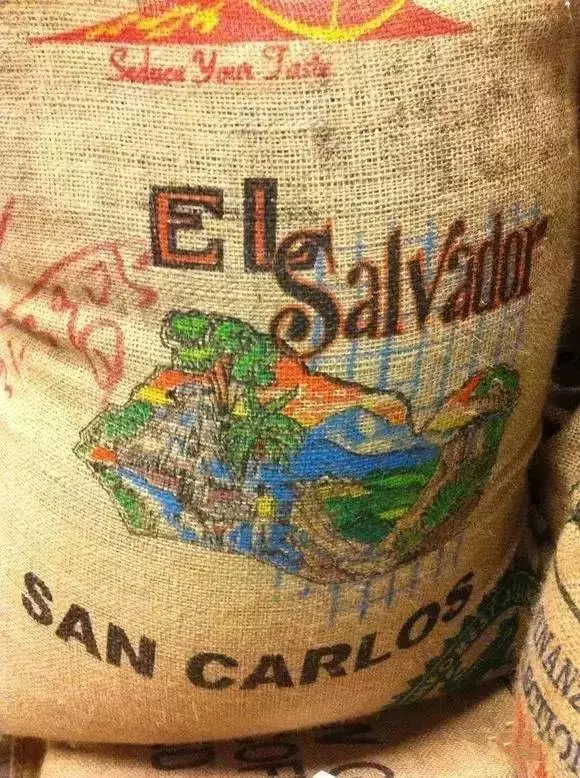
El Salvador boutique coffee is concentrated in the volcanic rock producing areas of Santa Ana in the west and Charantanan fruit in the northwest. In recent years, the top 10 cup tests are almost entirely from these two producing areas, with an altitude of about 9-1500 meters, mainly bourbon (68%). Followed by Pacas (29%), mixed-race Pakamara, Dulaai and Kaddura accounted for only 3%.
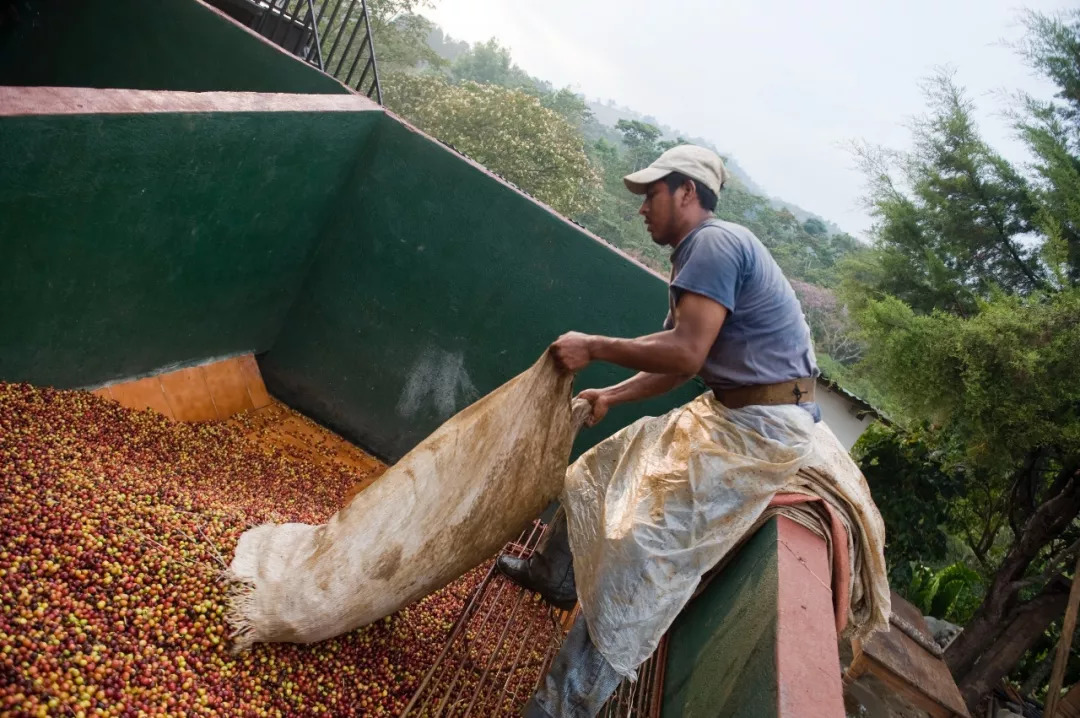
The coffee harvest lasts from November to March. The fresh fruit of coffee is picked by hand.
On the whole, Salvadoran coffee inherits the mild quality of Sino-American coffee, which is soft, slightly sour and has beautiful sweetness. At the same time, it also has its own characteristics: the aromatic taste is slightly sour and very soft; it is pure and has no miscellaneous flavor, and the taste balance is excellent; the smooth feeling like cream chocolate is impressive; the dense feeling of coffee in the mouth gives the coffee a deep taste and a long finish.
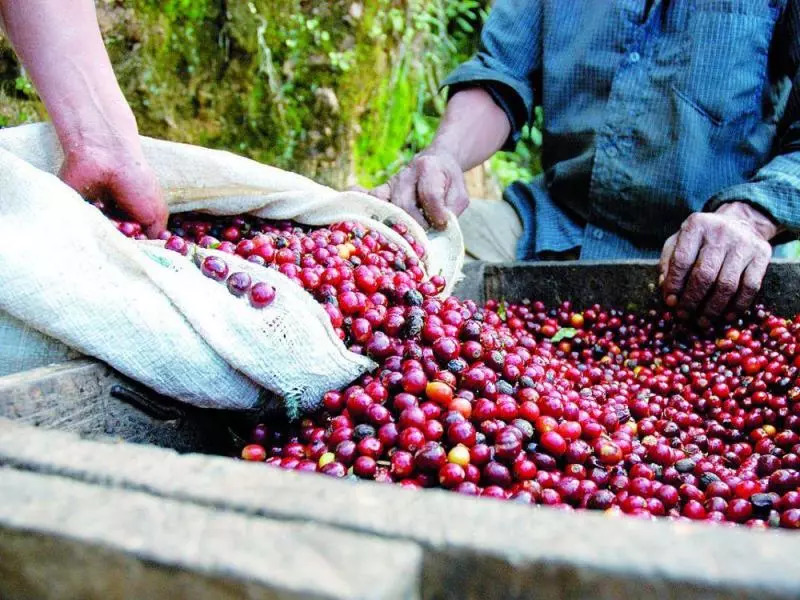
Salvadoran coffee is graded according to the altitude of planting, with the highest grade being SHG:
More than SHG:Strictly High Grown-1200 meters
More than HG:High Grown-900 meters
Above CS:Central Standard-600 meters.
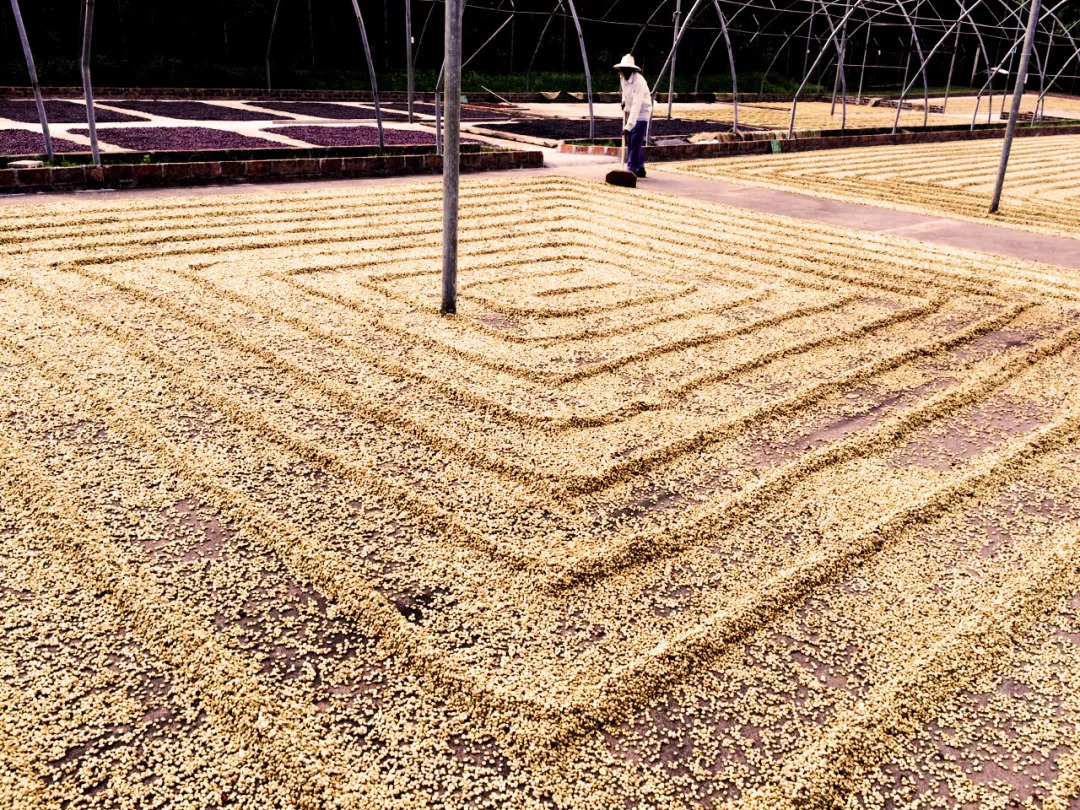
El Salvador and COE

El Salvador is a producer of high-quality commercial Arabica beans and is famous for its strict and effective quality control.
Since 2003, he has joined the COE competition. With excellent ancient coffee, successfully entered the boutique coffee market.
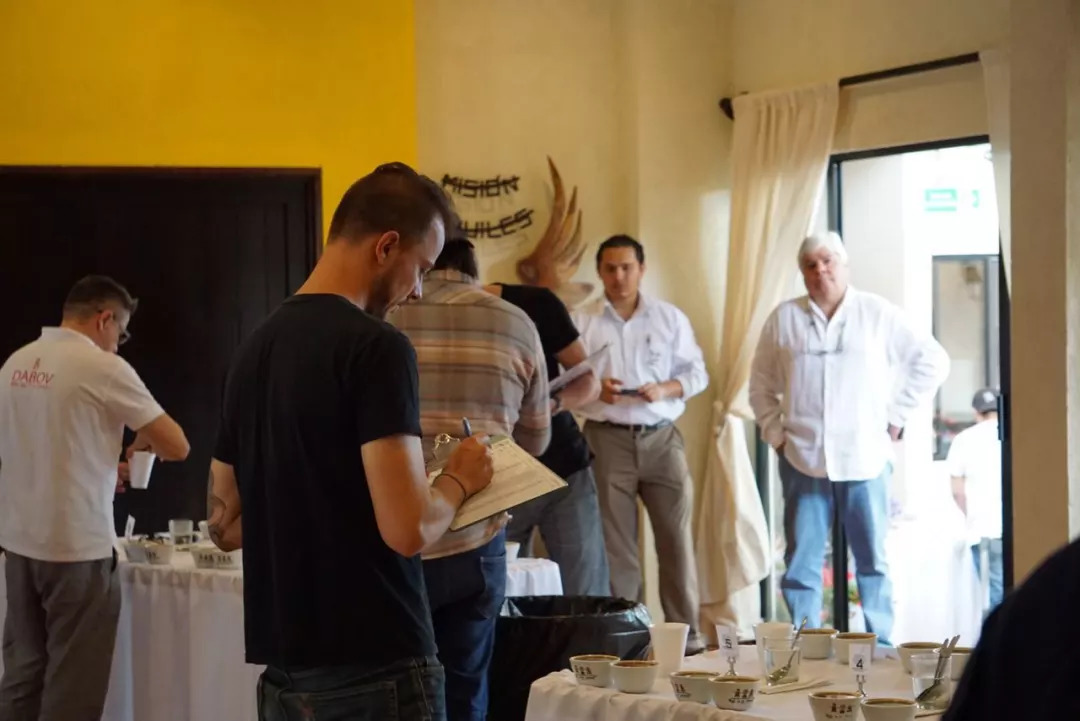
Coffee organization
UCAFES:Organization of coffee producity cooperatives of el salvador, output accounted for 25% of the total; UCRAPROBEX:Organization of Land Reform Coffee Producing & Processing Cooperatives, including small farmers without land before the land reform, accounted for 10% of the total output;
ABECAFE:Association of millers and Coffee Exporters, including 99 processing plants and most exporters;
The Association of Coffee Producers of El Salvador represents all coffee producers.
The above four coffee organizations, plus four national research institutes, constitute a coffee policy-making body--
The Salvadoran Coffee Association Consejo Salvadoreno del cafe (salvador coffee concil), which is involved in coffee promotion, data collection and international cooperation.
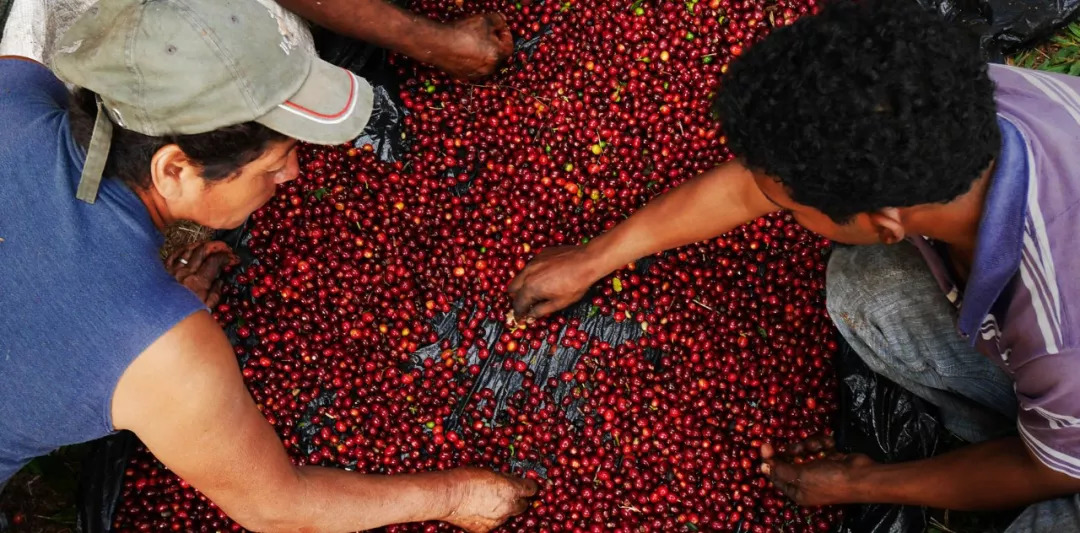
In short, there are more good beans to drink!
Qianjie coffee: Guangzhou bakery, the store is small but a variety of beans, you can find a variety of unknown beans, but also provide online store services. Https://shop104210103.taobao.com
Important Notice :
前街咖啡 FrontStreet Coffee has moved to new addredd:
FrontStreet Coffee Address: 315,Donghua East Road,GuangZhou
Tel:020 38364473
- Prev

Canadian Coffee Tim Hortons China has come up with a new way to sell porridge and matcha to cater to Chinese tastes
Professional coffee knowledge exchange more coffee bean information please follow Coffee Workshop (Wechat official account cafe_style) Canadian coffee shop chain Tim Hortons will add porridge and matcha products to its Chinese store menu to enhance its competitiveness in the Asian market and better suit the tastes of local consumers. According to the Toronto Star, Tim Hortons
- Next

Bai Yu, Coffii&Joy of KFC, strongly promoted Yum China's boutique coffee opened in Shanghai.
Professional coffee knowledge exchange more coffee bean information please follow the coffee workshop (Wechat official account cafe_style) COFFii 喜悦, is Yum China's boutique coffee shop in Shanghai, I believe many partners have clocked in. Recently, COFFiiJOY has made a big move. Shanghai Metro Daping and Peanut Metro wifi have placed advertisements. Style, this time the picture is not too beautiful.
Related
- Can I make coffee a second time in an Italian hand-brewed mocha pot? Why can't coffee be brewed several times like tea leaves?
- Hand-brewed coffee flows with a knife and a tornado. How to brew it? What is the proportion of grinding water and water temperature divided into?
- What is the difference between Indonesian Sumatra Mantinin coffee and gold Mantinin? How to distinguish between real and fake golden Mantelin coffee?
- What does bypass mean in coffee? Why can hand-brewed coffee and water make it better?
- Unexpected! Ruixing Telunsu lattes use a smoothie machine to foam milk?!
- % Arabia's first store in Henan opens into the village?! Netizen: Thought it was P's
- Does an authentic standard mocha coffee recipe use chocolate sauce or powder? Mocha Latte/Dirty Coffee/Salty Mocha Coffee Recipe Share!
- What is the difference between Vietnam egg coffee and Norway egg coffee? Hand-brewed single product coffee filter paper filter cloth filter flat solution!
- What is the difference between sun-cured and honey-treated coffee? What are the differences in the flavor characteristics of sun-honey coffee?
- How to make Italian latte! How much milk does a standard latte use/what should the ratio of coffee to milk be?

